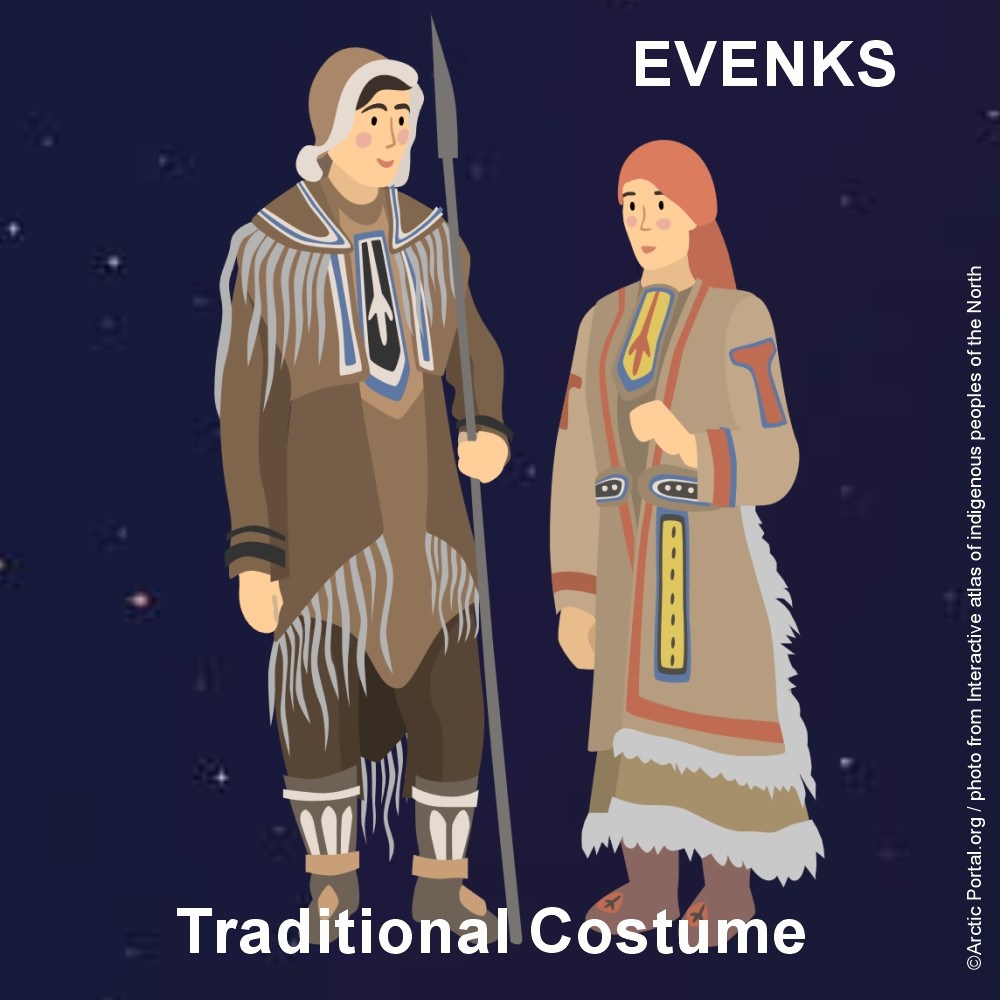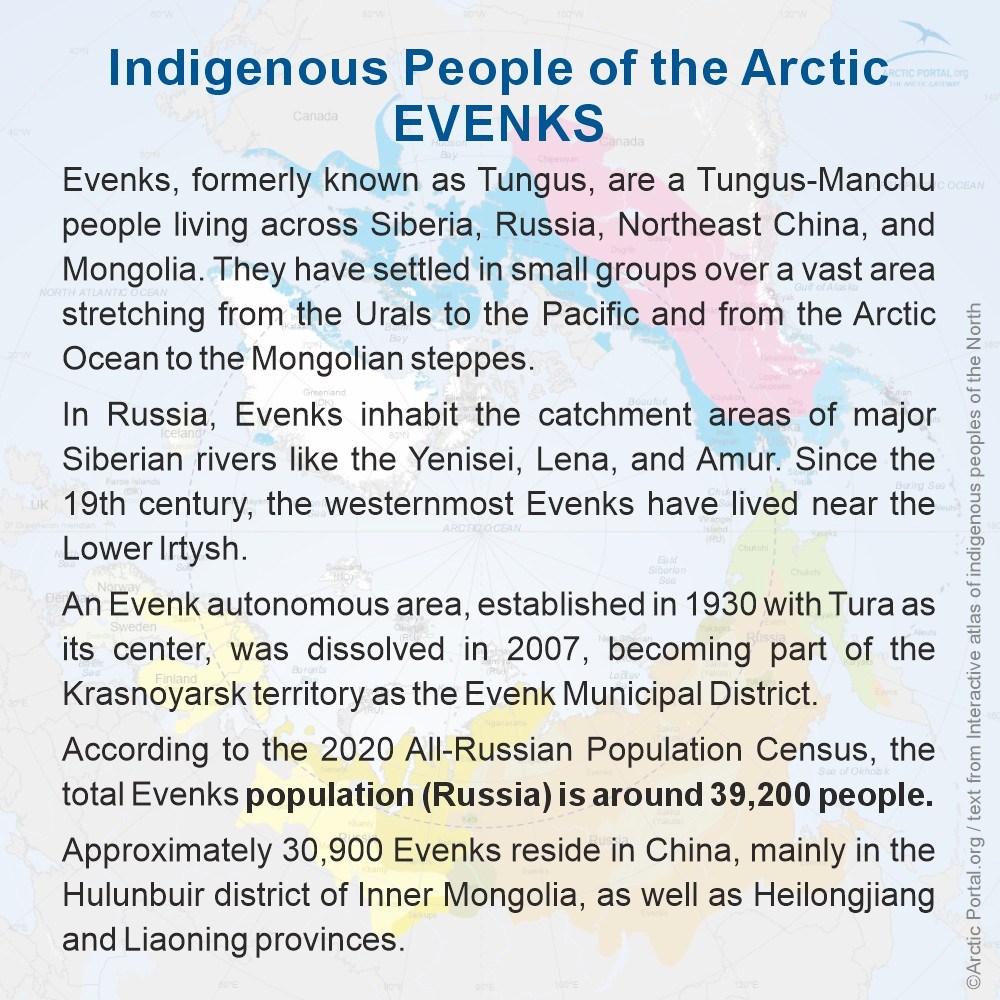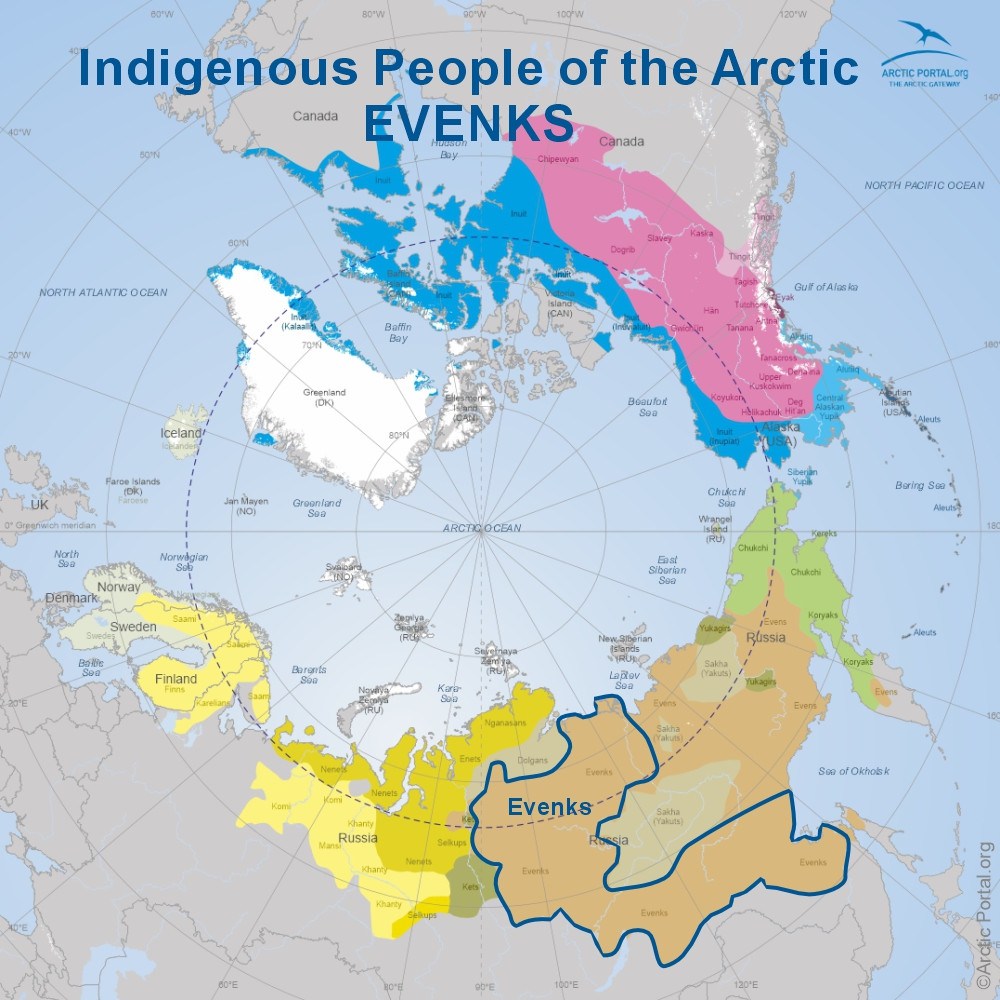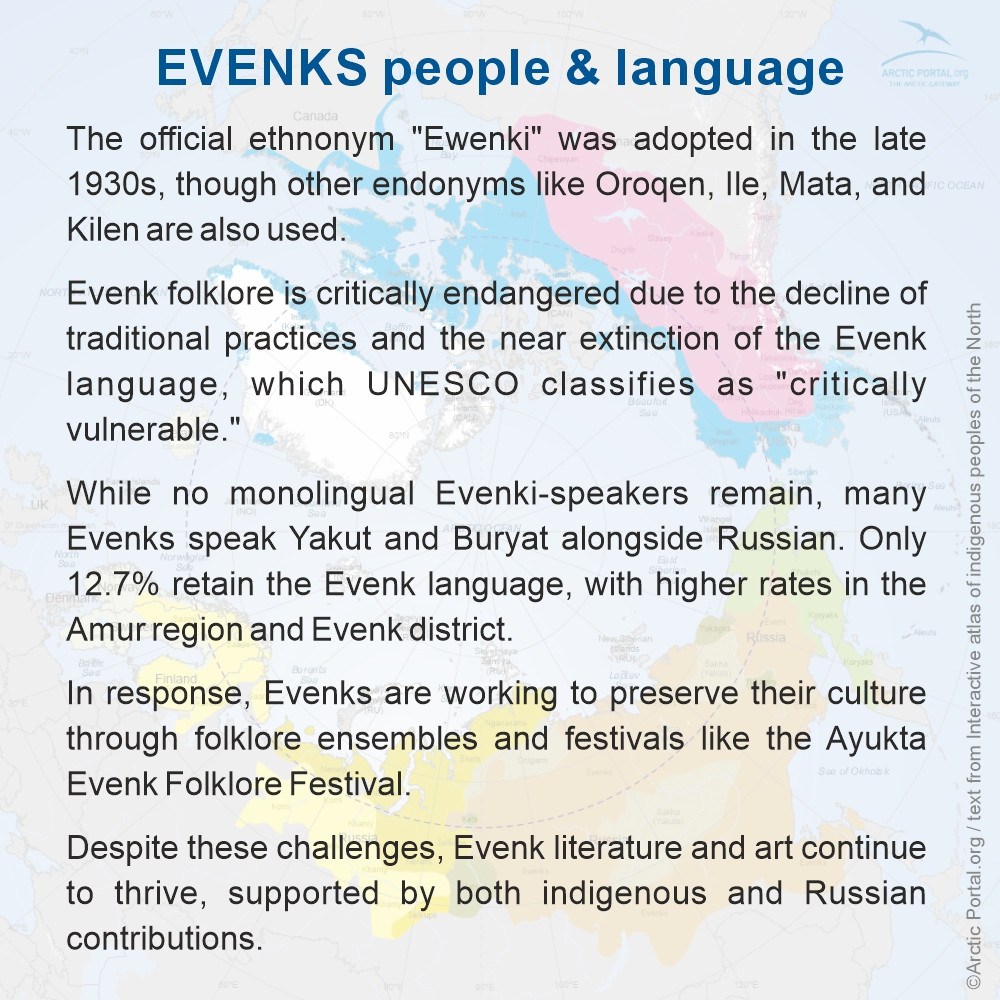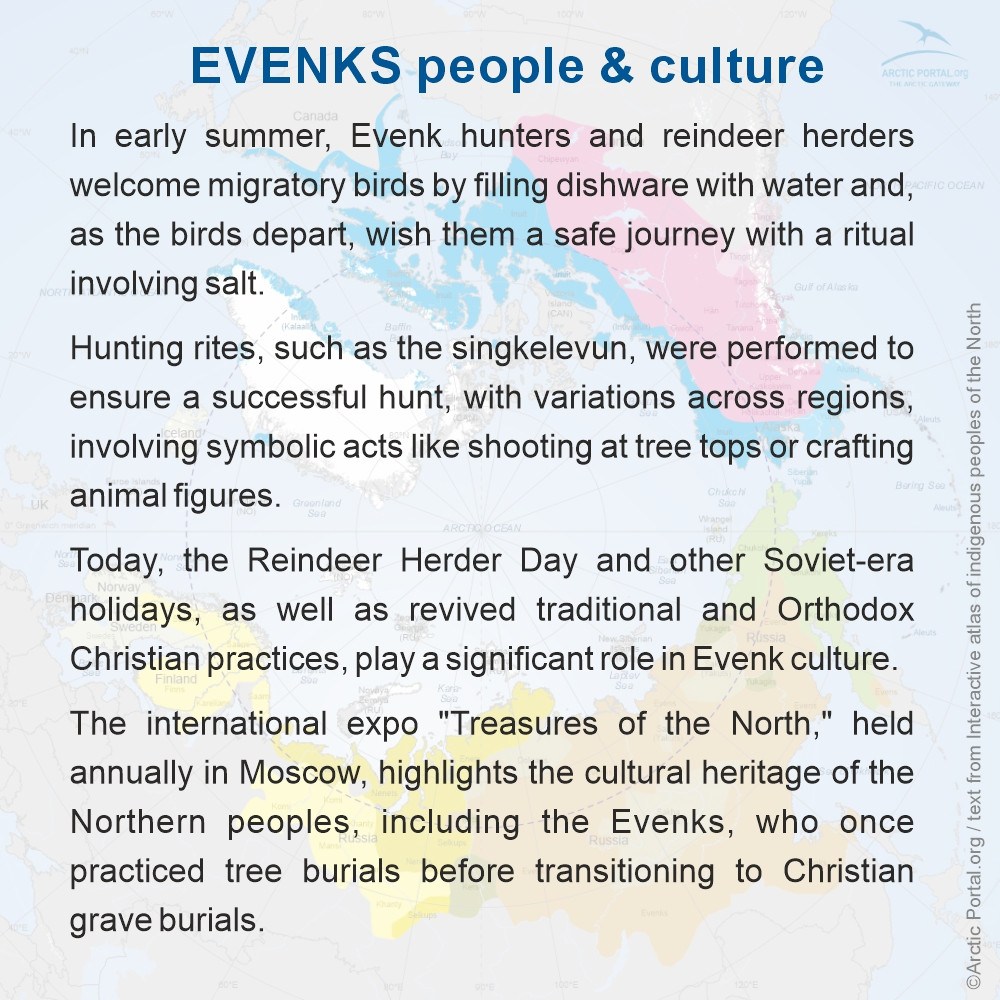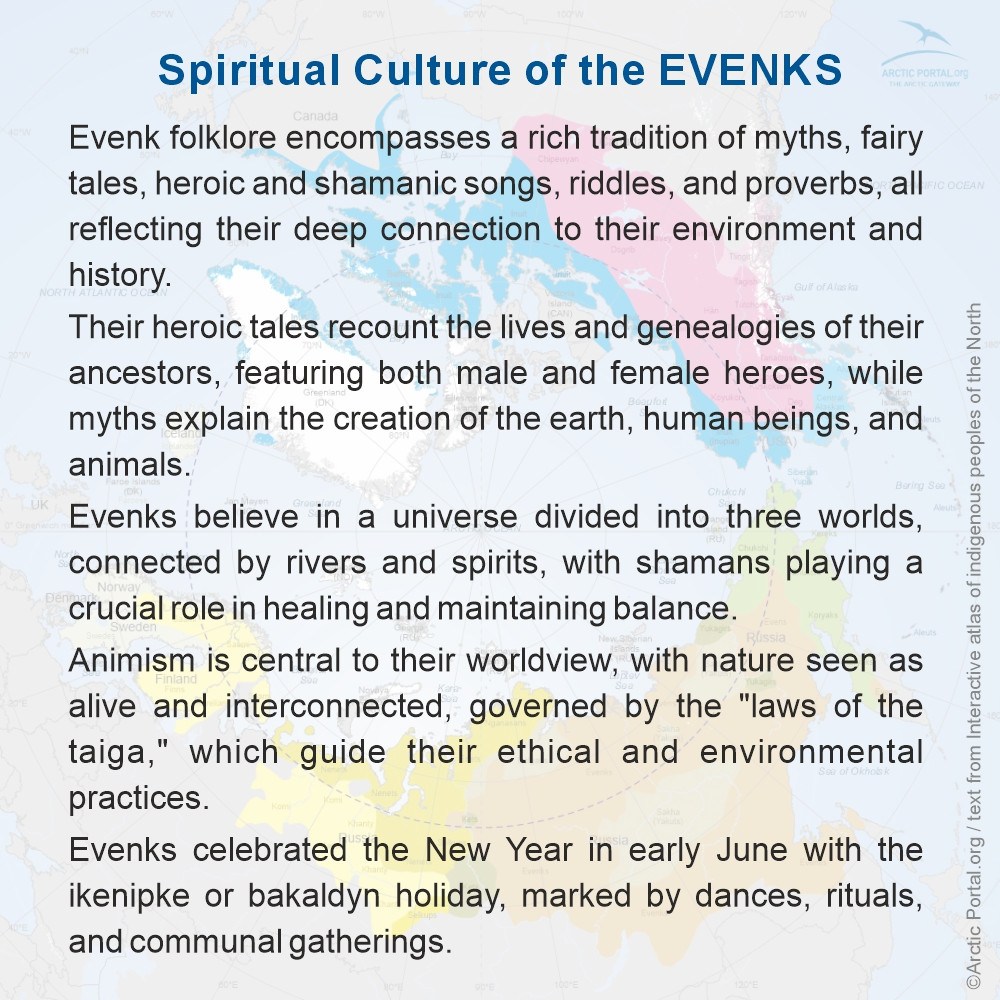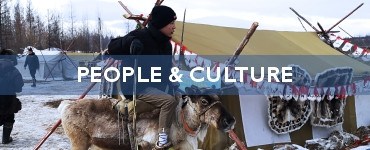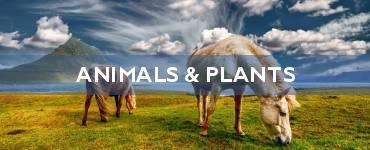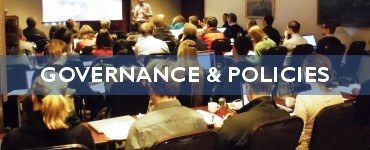Evenks, formerly known as Tungus, are a Tungus-Manchu people living across Siberia, Russia, Northeast China, and Mongolia. They have settled in small groups over a vast area stretching from the Urals to the Pacific and from the Arctic Ocean to the Mongolian steppes.
In Russia, Evenks inhabit the catchment areas of major Siberian rivers like the Yenisei, Lena, and Amur. Since the 19th century, the westernmost Evenks have lived near the Lower Irtysh.
An Evenk autonomous area, established in 1930 with Tura as its center, was dissolved in 2007, becoming part of the Krasnoyarsk territory as the Evenk Municipal District.
According to the 2020 All-Russian Population Census, the total Evenks population (Russia) is around 39,200 people.
Approximately 30,900 Evenks reside in China, mainly in the Hulunbuir district of Inner Mongolia, as well as Heilongjiang and Liaoning provinces.
Evenks Language
The official ethnonym "Ewenki" was adopted in the late 1930s, though other endonyms like Oroqen, Ile, Mata, and Kilen are also used.
Evenk folklore is critically endangered due to the decline of traditional practices and the near extinction of the Evenk language, which UNESCO classifies as "critically vulnerable."
While no monolingual Evenki-speakers remain, many Evenks speak Yakut and Buryat alongside Russian. Only 12.7% retain the Evenk language, with higher rates in the Amur region and Evenk district.
In response, Evenks are working to preserve their culture through folklore ensembles and festivals like the Ayukta Evenk Folklore Festival.
Despite these challenges, Evenk literature and art continue to thrive, supported by both indigenous and Russian contributions.
Evenks Culture
In early summer, Evenk hunters and reindeer herders welcome migratory birds by filling dishware with water and, as the birds depart, wish them a safe journey with a ritual involving salt.
Hunting rites, such as the singkelevun, were performed to ensure a successful hunt, with variations across regions, involving symbolic acts like shooting at tree tops or crafting animal figures.
Today, the Reindeer Herder Day and other Soviet-era holidays, as well as revived traditional and Orthodox Christian practices, play a significant role in Evenk culture.
The international expo "Treasures of the North," held annually in Moscow, highlights the cultural heritage of the Northern peoples, including the Evenks, who once practiced tree burials before transitioning to Christian grave burials.
Spiritual Culture of the Evenks
Evenk folklore encompasses a rich tradition of myths, fairy tales, heroic and shamanic songs, riddles, and proverbs, all reflecting their deep connection to their environment and history.
Their heroic tales recount the lives and genealogies of their ancestors, featuring both male and female heroes, while myths explain the creation of the earth, human beings, and animals.
Evenks believe in a universe divided into three worlds, connected by rivers and spirits, with shamans playing a crucial role in healing and maintaining balance.
Animism is central to their worldview, with nature seen as alive and interconnected, governed by the "laws of the taiga," which guide their ethical and environmental practices
Evenks celebrated the New Year in early June with the ikenipke or bakaldyn holiday, marked by dances, rituals, and communal gatherings.
Source: Interactive atlas of indigenous peoples of the North, Siberia and the Far East
Visit our Map Gallery Arctic Portal specializes in creating customized graphical maps that cover a range of significant Arctic topics with global recognition. We are continuously working on new maps and adding them to our Gallery.

